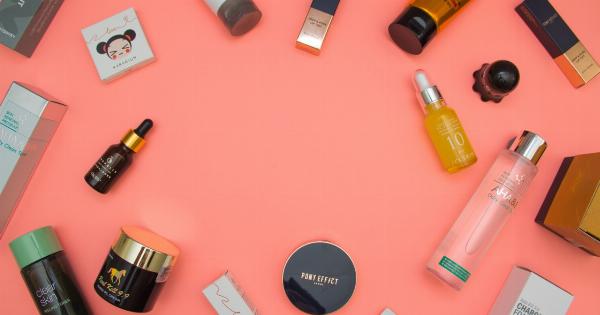Moisturizing is a vital part of any skincare routine. Properly moisturized skin looks healthy, plump, and glowing. In addition, moisturizing helps to keep your skin hydrated and protects it from damage and aging.
However, despite the importance of moisturizing, many people still make mistakes that could be impacting the effectiveness of their moisturizers.
In this article, we’ll be discussing the top 30 moisturizing mistakes you’re probably making, and how to avoid them.
1. Not Moisturizing Enough
One of the most common moisturizing mistakes is simply not using enough moisturizer. When you apply moisturizer, you should use enough to cover your face or body completely, but not too much that it takes a long time to absorb.
If you’re not using enough moisturizer, your skin won’t get the full benefits of hydration and protection, leading to dull, dry, and irritated skin. So, make sure to use enough moisturizer to cover your skin adequately.
2. Using the Wrong Type of Moisturizer
Another mistake is using the wrong type of moisturizer for your skin type and concerns. There are different types of moisturizers available, such as lotions, creams, gels, and oils.
Some moisturizers are formulated for specific skin types, like oily, dry, or sensitive skin.
Using a moisturizer that is not suitable for your skin type can result in clogged pores, breakouts, or irritated skin. So, choose a moisturizer that works best for your skin type and needs.
3. Applying Moisturizer on Dry Skin
Applying moisturizer on dry skin is also not recommended, as the moisturizer will not penetrate deeply enough to provide hydration to the skin. This can cause your skin to feel sticky or greasy, and you may still experience dryness and flakiness.
Before applying moisturizer, make sure you cleanse your skin and pat it dry with a towel. This will help to open up your pores and allow the moisturizer to work more effectively.
4. Skipping Moisturizer During the Day
Not moisturizing during the day is another common mistake people make. Moisturizing in the morning can help to protect your skin from environmental stressors, such as pollution and UV rays, that can damage and age your skin.
Also, if you’re wearing makeup, using moisturizer first can help create a smooth, even base for your makeup to adhere to.
5. Breaking the Seal on the Moisturizer Container
Breaking the seal on the moisturizer container can cause the product to lose effectiveness and become less potent. Make sure to keep the seal intact until you’re ready to use the product.
Store your moisturizer in a cool, dry place, away from direct sunlight, to prevent it from spoiling or losing its potency.
6. Not Using Moisturizer on Your Neck and Chest
Another mistake is neglecting your neck and chest area when moisturizing. These areas are also prone to dryness and aging, and using moisturizer on them can help to keep them hydrated and youthful-looking.
Apply your moisturizer in upward strokes to your neck and chest, making sure to cover all areas thoroughly.
7. Over-Application of Moisturizer in Certain Areas
Applying too much moisturizer in certain areas, such as around the nose or on the forehead, can cause pore congestion and breakouts. These areas tend to produce more oil and using too much moisturizer can exacerbate the problem.
Apply moisturizer sparingly in these areas, and focus more on areas that tend to be drier, such as the cheeks, chin, and neck.
8. Using Cold Water to Rinse Your Face After Moisturizing
Using cold water to rinse your face after moisturizing can cause your pores to close up and prevent the moisturizer from penetrating the skin’s surface. This can leave your skin feeling dry and tight.
Rinse your face with lukewarm water instead, and pat it dry gently with a soft towel.
9. Rubbing Moisturizer into Your Skin Too Vigorously
Another mistake is rubbing moisturizer into your skin too vigorously, which can cause irritation and inflammation.
Instead, use gentle, circular motions to massage the moisturizer into your skin, allowing it to absorb naturally.
10. Skipping Moisturizer at Night
Not moisturizing at night is another mistake that many people make. Nighttime is when your skin repairs and rejuvenates itself, and using moisturizer before bed can help to boost this process and keep your skin looking healthy.
Choose a moisturizer that is specifically formulated for nighttime use, with ingredients like retinol or peptides that can help to stimulate collagen production and repair damaged skin cells.
11. Using Moisturizer on Wet Skin
Using moisturizer on wet skin can dilute the product, making it less effective. Make sure to pat your skin dry with a towel before applying moisturizer.
However, if you’re using a serum or essence, applying it to damp skin can help it to absorb more effectively.
12. Using Moisturizer Without SPF in the Morning
Skipping sunscreen in the morning can accelerate premature aging and damage to your skin. Using a moisturizer that also has sunscreen can help to protect your skin from harmful UV rays while keeping it hydrated.
Look for a moisturizer with at least SPF 30 or higher, and make sure to reapply throughout the day if you’re spending time outdoors.
13. Using Moisturizer with Parabens and Sulphates
Parabens and sulphates are commonly used in skincare products, but they have been linked to health issues such as hormonal disruption and skin irritation.
Choose a moisturizer that is free from harmful ingredients and contains natural ingredients like aloe vera, coconut oil, and shea butter.
14. Not Leaving Enough Time for Moisturizer to Absorb
Not leaving enough time for your moisturizer to absorb can cause pilling or rub off on your clothes. Make sure to give your skin enough time to fully absorb the moisturizer before applying anything else, such as makeup or sunscreen.
This can take anywhere from a few seconds to a few minutes, depending on the type of moisturizer and your skin type.
15. Exfoliating Too Much
Exfoliating too much can strip your skin of its natural oils and cause irritation, making it difficult for your skin to retain moisture.
Limit your exfoliation to once or twice a week, and choose a gentle exfoliating product that won’t cause damage to your skin.
16. Not Drinking Enough Water
Drinking enough water is essential for healthy, hydrated skin. When you’re dehydrated, your skin can become dry, flaky, and prone to wrinkles.
Make sure to drink at least 8 glasses of water a day, and more if you’re exercising or spending time in a hot, dry climate.
17. Using Soap to Cleanse Your Face
Using soap to cleanse your face can strip away your skin’s natural oils and cause dryness and irritation.
Use a gentle, non-foaming cleanser to remove dirt, oil, and makeup from your skin without damaging its natural barrier.
18. Using Moisturizer Affecting the Skin pH
Moisturizer can have a varying effect on the skin’s pH, and using one that is too acidic or alkaline can cause irritation, breakouts, and other issues.
Choose a moisturizer that is pH-balanced and matches your skin’s natural pH, which is around 5.5.
19. Not Protecting Your Skin From Wind and Cold
Wind and cold temperatures can dry out your skin and cause it to lose moisture.
Make sure to protect your skin by wearing warm clothing, gloves, and a scarf, and use a moisturizer that can help to create a barrier between your skin and the elements.
20. Using Toner That Contains Alcohols
Using a toner that contains alcohol can dry out your skin and cause irritation and redness.
Choose a toner that is alcohol-free and contains ingredients like witch hazel or rosewater, which can help to soothe and hydrate your skin while removing any remaining impurities.
21. Applying Moisturizer Too Close to Your Eyes
Applying moisturizer too close to your eyes can cause irritation, puffiness, and even mild discomfort.
Avoid applying moisturizer directly to the eye area, and use an eye cream or gel that is specifically formulated for this delicate area.
22. Not Incorporating Moisturizer Into Your Skincare Routine
Skipping moisturizer completely can cause your skin to become dehydrated, leading to premature aging, fine lines, and wrinkles.
Make moisturizer a regular part of your skincare routine, both morning and night, to keep your skin looking healthy and radiant.
23. Using Moisturizer That Contains Mineral Oil
Mineral oil is a common ingredient in moisturizers, but it can clog pores and cause breakouts, especially if you have oily or acne-prone skin.
Choose a moisturizer that is free from mineral oil and contains natural oils, like jojoba or argan oil, that can help to hydrate your skin without causing breakouts.
24. Overusing Moisturizer Around Your Nose
Applying too much moisturizer around your nose can cause pore congestion and breakouts, especially if you have oily or combination skin.
Apply moisturizer sparingly in this area, and use a mattifying product or primer if you want to control shine.
25. Using Moisturizer on Broken or Irritated Skin
Using moisturizer on broken or irritated skin can cause stinging, burning, or other discomfort.
Avoid using moisturizer on any areas that are broken or irritated, and use a healing ointment or other product to treat the affected area first.
26. Not Washing Your Hands Before Applying Moisturizer
Not washing your hands before applying moisturizer can transfer bacteria and dirt onto your skin, leading to breakouts and other issues.
Make sure to wash your hands thoroughly before applying moisturizer, and use a clean towel or tissue to dry them.
27. Using Moisturizer That Has Expired
Using moisturizer that has expired can cause skin irritation, breakouts, and rashes, since the ingredients may no longer be effective.
Check the expiration date on your moisturizer, and make sure to replace it if it has expired or is past its prime.
28. Using Moisturizer Immediately After Shaving
Using moisturizer immediately after shaving can cause stinging, burning, and redness.
Wait at least 10-15 minutes after shaving before applying moisturizer, to give your skin time to recover and calm down.
29. Using Moisturizer That Contains Synthetic Fragrance
Synthetic fragrance can irritate your skin and cause allergic reactions.
Choose a moisturizer that is free from synthetic fragrances and contains natural scents, like essential oils or plant extracts, that can be beneficial for your skin.
30. Not Using Moisturizer Consistently
Using moisturizer inconsistently can make it difficult for your skin to retain moisture and protect itself from environmental stressors.
Make sure to use moisturizer consistently, every day, to keep your skin healthy, hydrated, and radiant.
Conclusion
Proper moisturizing is essential for maintaining healthy, hydrated skin, but many people still make mistakes that could be impacting the effectiveness of their moisturizers.
By avoiding these top 30 moisturizing mistakes, you can get the most out of your moisturizer and keep your skin looking healthy, plump, and youthful.































